What is Gustavo Petro's government seeking by submitting a new request for a referendum to the Senate?

Since the Senate's referendum collapsed, President Gustavo Petro has issued several announcements in response to his latest defeat. It's a multi-stage strategy, one of which is to submit a new request to Congress to call another referendum to the polls.
The topics covered in the failed petition would be the same as those in the previous one, but an additional question would be added. This one would focus on aspects of health reform, as the President himself revealed from China. "We're going to talk about health. There can't be any more hoarding of medicines, and prices can't be speculative," said the president, who then revealed the question he would add.
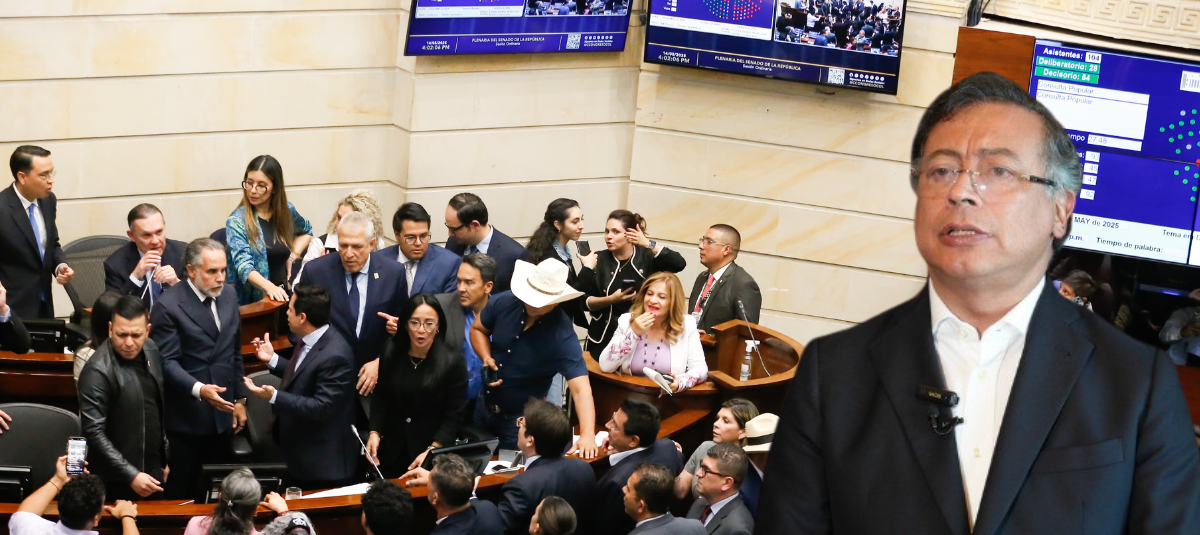
President Gustavo Petro called for marches. Photo: Néstor Gómez - El Tiempo / Presidency
In this, citizens would be asked to express their agreement or disagreement with "lowering the price of medicines in the country and allowing the State to purchase and produce essential medicines and those for the main illnesses that people suffer from."
In that same speech, the president hinted at why he would add this question, especially since his healthcare reform is still pending in the Senate. "We're going to add other questions that really get to the heart of the program and can appeal to the majority of the population," Petro said.
Regarding what would be the new question in the referendum, sectors have said there is no need for it, as these are issues already under the government's jurisdiction. One of those who expressed this reality was former Minister of Health and Education Alejandro Gaviria, who has expressed his differences with the Petro administration since leaving the government.
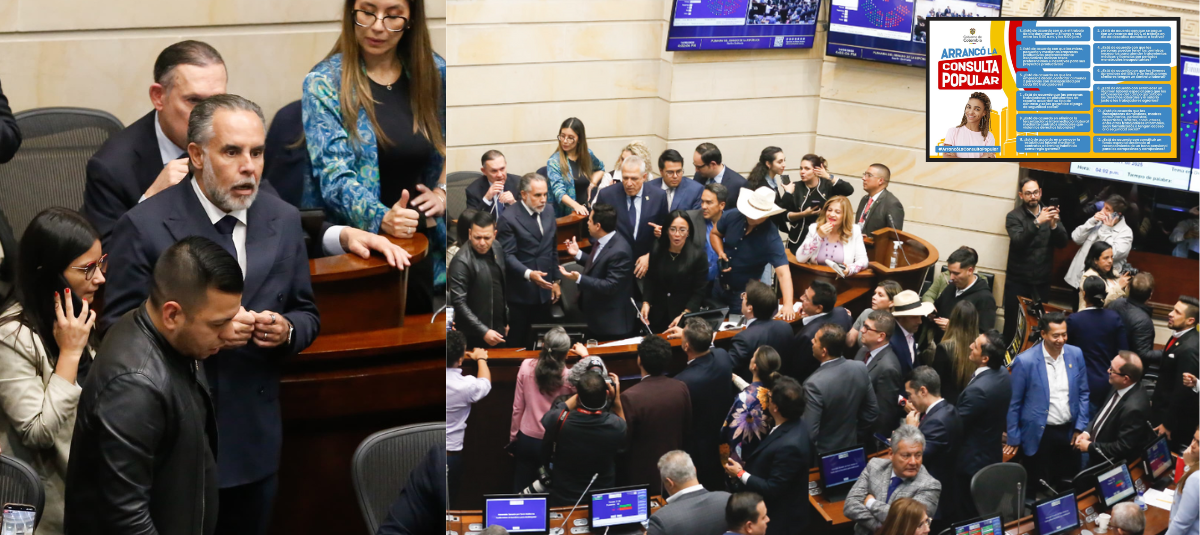
The referendum failed with 49 votes. Photo: Néstor Gómez - EL TIEMPO
"The question about medicines is a farce, a hoax. The government has the regulatory authority to lower drug prices. They've done nothing. They have no pharmaceutical policy. Now they're trying to use their own ineffectiveness to demagogue," the former minister said.
In another message, he added: "Price regulation doesn't require a referendum. It can be done within the current regulatory framework. Why doesn't the government implement it instead of including it in the referendum? Because their interest isn't in lowering prices, but in demagoguery."
It's worth remembering that Colombia has already had a law regulating medications since the administration of Juan Manuel Santos. This is Law 1438 of 2011 , specifically implemented by Gaviria while he was Minister of Health between 2012 and 2018.
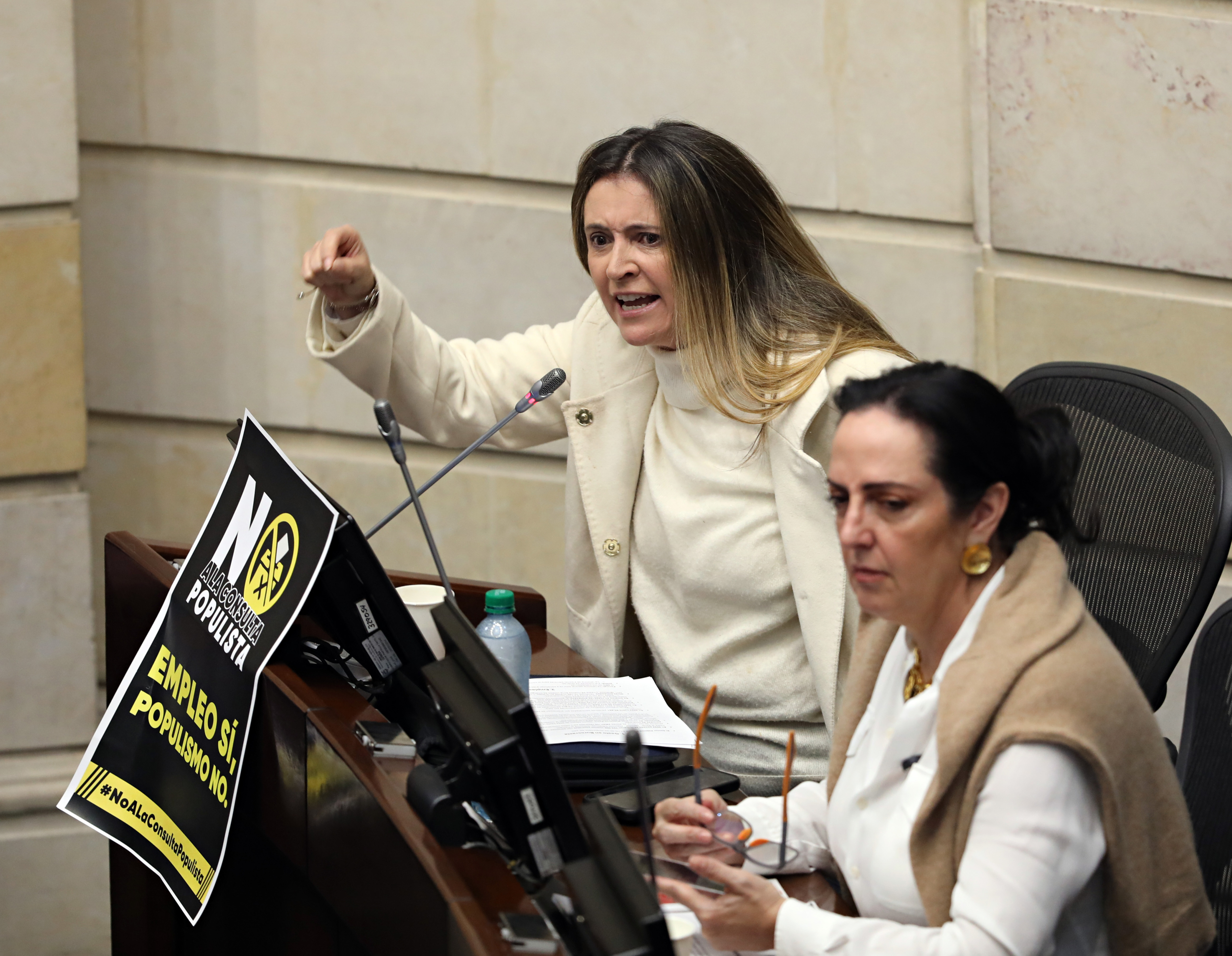
This is how the plenary session on the referendum unfolded. Photo: Milton Diaz / El Tiempo
Experts have also pointed out that the State's purchase and manufacture of medicines does not require a consultation, as the Executive Branch is already authorized to do so. "The government is the largest purchaser of medicines. It purchases 60% of medicines from the public system and 100% from special regimes," economist Mario Fernando Cruz stated in a message on social media. Epidemiology doctor Julián Fernández, also in a tweet, agreed that the State already purchases medicines and has even proposed advancing the manufacture of vaccines, without achieving significant results.
Thus, several have pointed out that the sole intention of this new question is to try to slightly modify the consultation, so it can be resubmitted and at the same time try to gain new support by including an issue as crucial to citizens as medications.
Along these lines, analyst Gonzalo Araujo of the Orza firm stated: "The government's strategy is clear: it needs to get the electoral process underway at all costs, in order to seek 2026 congressional lists that will garner significant votes and thus ensure the continuity of the political project." He asserts that the executive branch's intention with the call to the polls is to begin next year's electoral process early, a position shared by various opposition sectors.
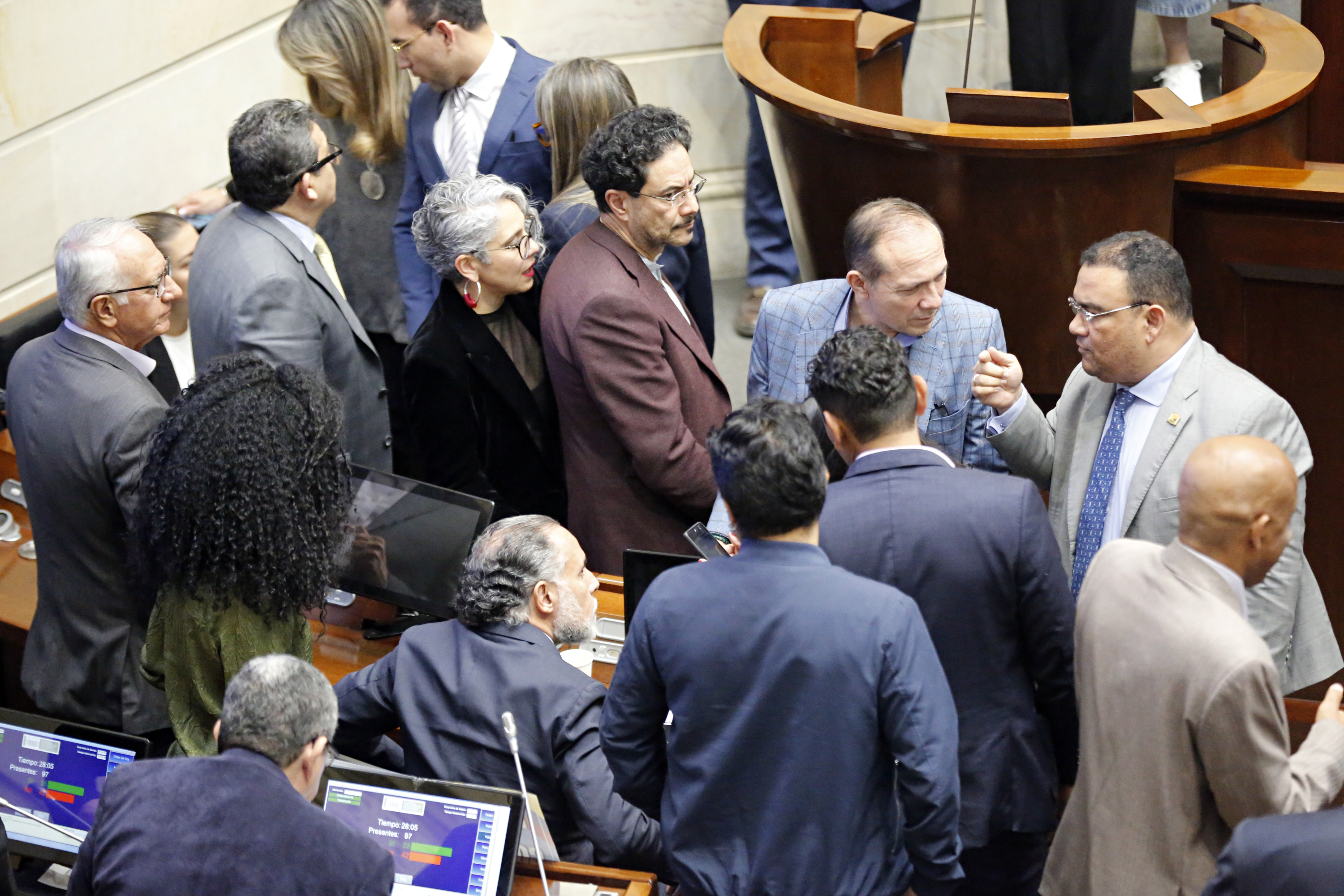
Images from the referendum debate. Photo: Milton Diaz / El Tiempo
However, some analysts have questioned the effectiveness of this strategy of resubmitting a referendum text. "It's a hasty reaction; we have to see if the conditions are right to present the referendum. Nothing substantial has changed to suggest that this new proposal can win," said Professor Jorge Iván Cuervo of Externado University.
In this regard, the academic added that Wednesday's session demonstrated that "the Senate has no problem standing up to the government and popular pressure." Therefore, he indicated that, despite the Petro administration's "doubling down," it is very likely that what happened this week will be repeated.
However, Patricia Ariza, director of the Political Science graduate program at Javeriana University, commented that, beyond a possible electoral interest, the president is viewing the referendum proposals as a way to pressure Congress to advance his proposals.
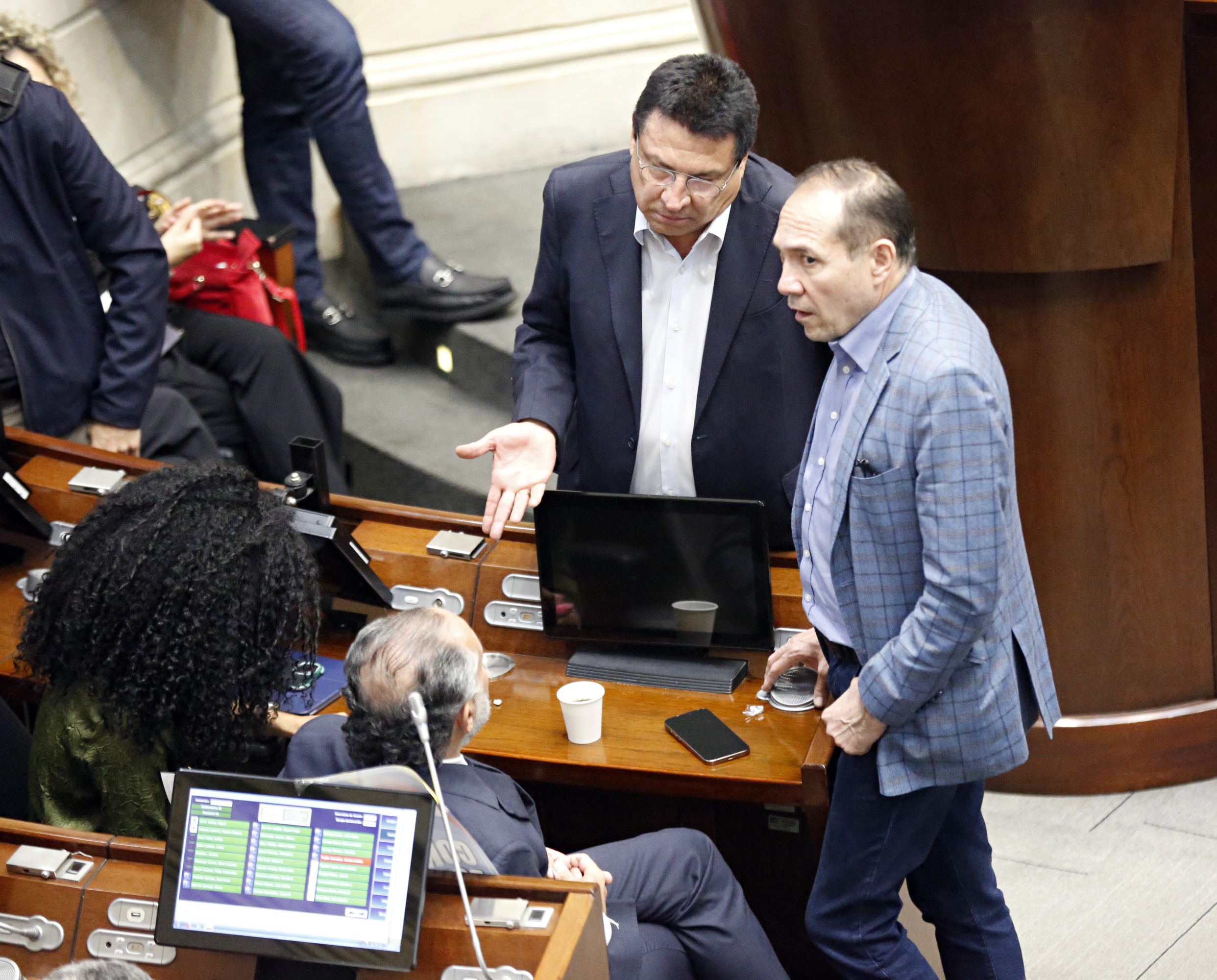
Dialogue between Senator Pinto and the Ministers of the Interior and Labor during the referendum debate. Photo: Milton Diaz / El Tiempo
"The use of the consultation mechanism has been operating as a wake-up call to congressmen to see that if they cannot process reforms through Congress, then there is the option of participatory mechanisms, calls for mobilization, and strikes," Ariza said.
For the expert, while it is true that the use of participation mechanisms should be encouraged, as a way for "citizens to channel all their demands and requests through institutional channels (...) It is very important that the government and Congress understand that as institutions they must seek the greatest possible levels of rapprochement and consensus to advance reforms, adjustments, and changes."
Can the government present a second referendum? In addition to the possible reasons for the government to submit a new request for a referendum, there are doubts about whether it is possible to submit this request with almost the same content as the previous one.
The law regulating participation mechanisms does not place any limits on these requests from the Executive Branch. However, constitutional lawyer and former constituent assembly member Gustavo Zafra stated: "I don't think it's legally or politically viable. The Senate has already cheated them out of the referendum issue."
"In interpreting the law, the Constitution cannot be manipulated because the Senate has already ruled," the expert added. In this regard, he indicated that it is necessary to evaluate whether the mere addition of a new question can be interpreted as a different text from the one studied by the Senate.
Zafra noted that every presidential order is considered administrative in nature, and therefore could be subject to review by the administrative courts. However, such review is delayed, and it is highly likely that a ruling from the legislature has already been issued.
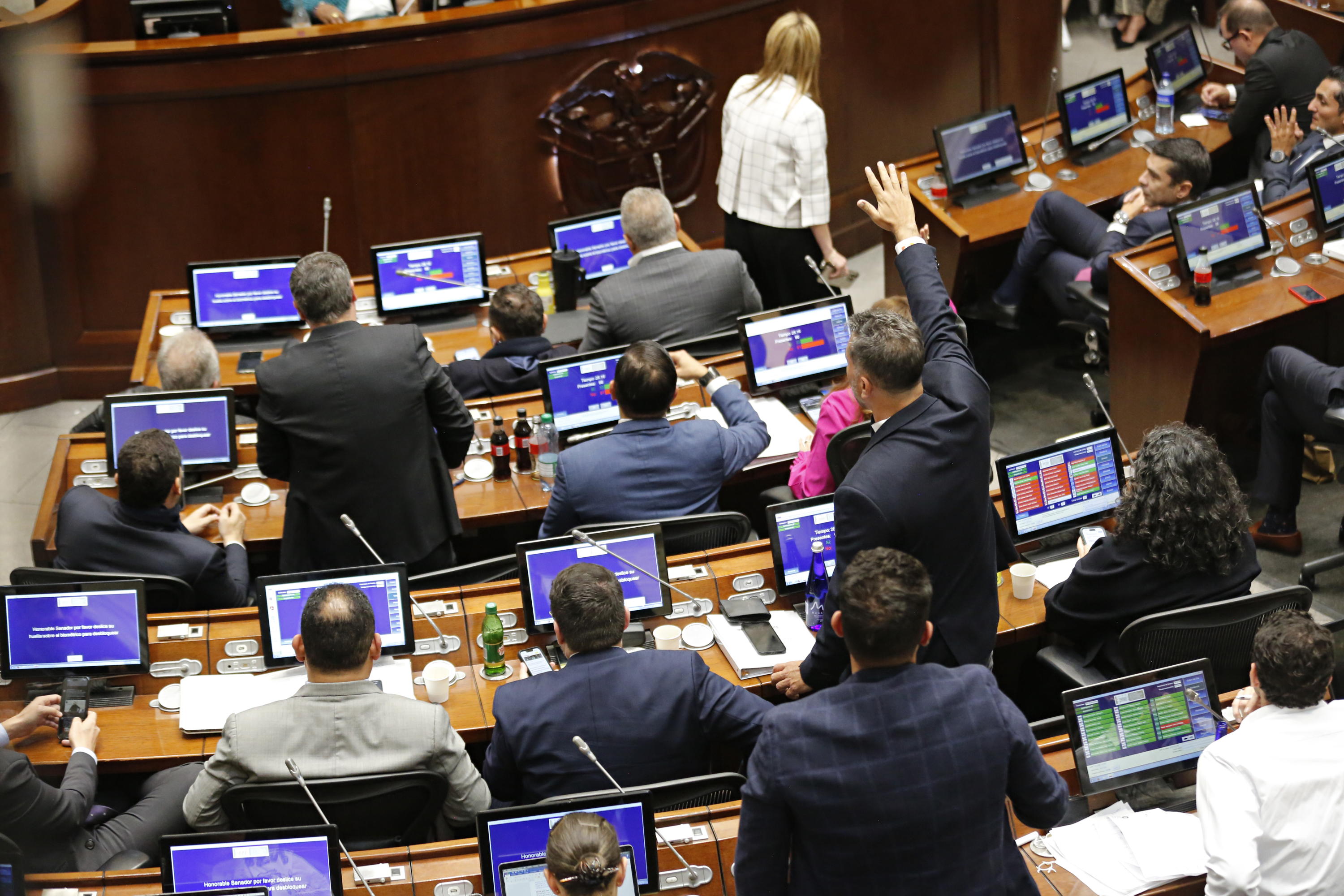
This is how the Senate voted on the referendum. Photo: Milton Diaz / El Tiempo
Former Constitutional Court President Alfredo Beltrán also agreed that the same text could not be presented and that there would be a debate about whether adding a question could be considered a new proposal. In that regard, he commented that a review of the referendum's viability could only take place once the administrative act becomes final.
That is, the Senate would have to approve the referendum, and the president would have to call the polls by decree before it could be submitted to the Council of State. Only then could it be reviewed through legal means to ensure the questions comply with Colombian law and whether or not there were any irregularities with the text submitted to the legislature. "At that point, it can be submitted by filing a complaint, after completing the entire process. Because if it's after the popular vote, who would amend it? There would already be a pronouncement from the sovereign," he concluded.
You can see: 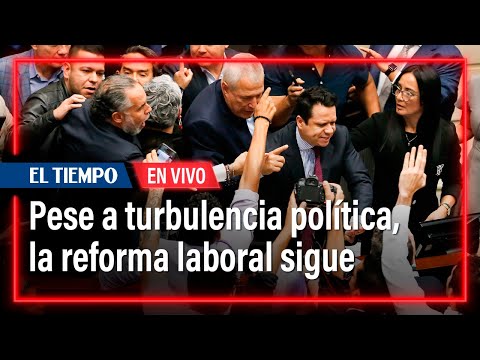
The Senate revived the labor reform and scuttled the referendum. Photo:
Juan Sebastian Lombo Delgado
eltiempo





